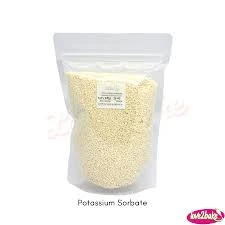
sulphate of potash fertilizer
The Importance of Sulphate of Potash Fertilizer in Agriculture
Sulphate of potash, often abbreviated as SOP, is a vital fertilizer used in agriculture to promote healthy plant growth and improve crop yields. Composed of potassium (K) and sulfur (S), it provides essential nutrients that plants require, making it a valuable resource for farmers across various crops, particularly those sensitive to chlorine.
One of the most significant advantages of sulphate of potash fertilizer lies in its potassium content. Potassium is an essential macronutrient involved in numerous physiological processes in plants, including photosynthesis, enzyme activation, and water regulation. It plays a critical role in the production of proteins and sugars, and its presence enhances fruit quality, size, and sweetness. Thus, the use of SOP is particularly beneficial for fruit and vegetable crops, as it contributes to higher market value and consumer appeal.
Furthermore, the sulfur component in sulphate of potash is equally important. Sulfur is a key element in amino acids, vitamins, and enzymes, which are crucial for plant growth and development. It also aids in chlorophyll formation, facilitating efficient photosynthesis. Utilizing SOP not only meets the potassium and sulfur needs of crops but also helps improve nitrogen utilization, ultimately leading to better growth and development.
sulphate of potash fertilizer

Unlike other potassium fertilizers, such as muriate of potash (MOP), sulphate of potash contains little to no chloride, making it ideal for chlorine-sensitive crops, such as potatoes, grapes, and tobacco. High chloride levels can be detrimental to these plants, resulting in lower yields and poor quality produce. Therefore, using SOP helps mitigate these risks and ensures that farmers can achieve optimal results from their crops.
In addition to its nutrient benefits, another compelling reason for using sulphate of potash fertilizer is its environmental impact. SOP is derived from natural sources, making it a more sustainable choice compared to many synthetic fertilizers. Moreover, it minimizes the risk of soil salinity and the buildup of harmful chemicals, which can occur with excessive use of other fertilizers. This environmentally friendly approach is increasingly essential, given the global emphasis on sustainable agricultural practices.
SOP can be applied in various ways, including broadcasting, foliar feeding, and fertigation, making it versatile for different farming systems. Its solubility in water ensures that nutrients are readily available for plant uptake, leading to efficient nutrient use and reduced waste.
In conclusion, sulphate of potash fertilizer is an indispensable tool for modern agriculture. By providing essential potassium and sulfur nutrients, it enhances crop yield, improves fruit quality, and supports sustainable farming practices. As farmers continue to seek effective solutions to meet the demands of a growing population while minimizing environmental impact, SOP will undoubtedly play a crucial role in the future of agriculture. Emphasizing the use of such fertilizers not only boosts agricultural productivity but also promotes a healthier ecosystem for generations to come.
-
Pure Sodium Dichloroisocyanurate Dihydrate | Powerful DisinfectantNewsAug.29,2025
-
Industrial Chemicals: Quality & Purity for Every IndustryNewsAug.28,2025
-
Nitrile Rubber Honoring Strict Production StandardsNewsAug.22,2025
-
Aspartame Ingredients Honoring Food Safety ValuesNewsAug.22,2025
-
Fertilizer for Balanced Plant NutritionNewsAug.22,2025
-
Cyanide Gold Processing with High Purity AdditivesNewsAug.22,2025
-
Formic Acid in Textile Dyeing ApplicationsNewsAug.22,2025
Hebei Tenger Chemical Technology Co., Ltd. focuses on the chemical industry and is committed to the export service of chemical raw materials.
-

view more DiethanolisopropanolamineIn the ever-growing field of chemical solutions, diethanolisopropanolamine (DEIPA) stands out as a versatile and important compound. Due to its unique chemical structure and properties, DEIPA is of interest to various industries including construction, personal care, and agriculture. -

view more TriisopropanolamineTriisopropanolamine (TIPA) alkanol amine substance, is a kind of alcohol amine compound with amino and alcohol hydroxyl, and because of its molecules contains both amino and hydroxyl. -

view more Tetramethyl Thiuram DisulfideTetramethyl thiuram disulfide, also known as TMTD, is a white to light-yellow powder with a distinct sulfur-like odor. It is soluble in organic solvents such as benzene, acetone, and ethyl acetate, making it highly versatile for use in different formulations. TMTD is known for its excellent vulcanization acceleration properties, which makes it a key ingredient in the production of rubber products. Additionally, it acts as an effective fungicide and bactericide, making it valuable in agricultural applications. Its high purity and stability ensure consistent performance, making it a preferred choice for manufacturers across various industries.





